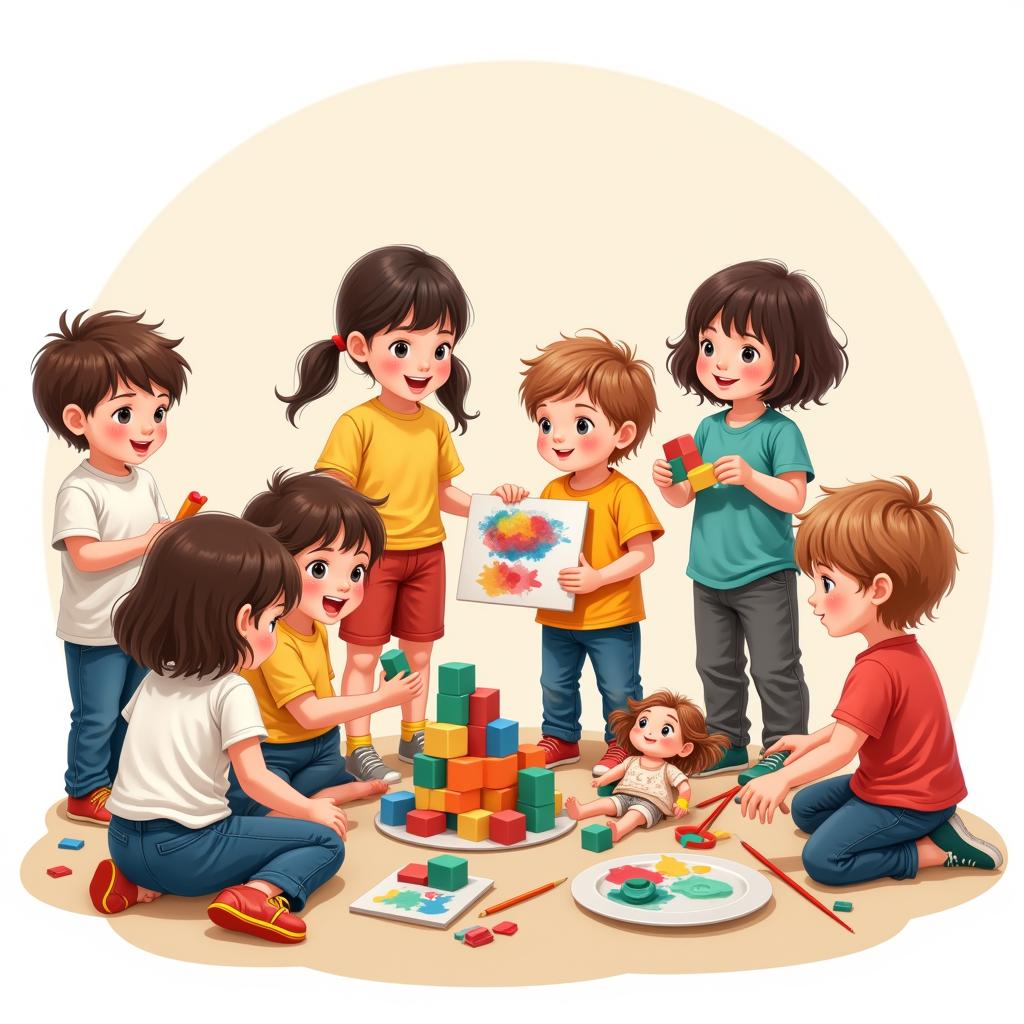“Girls should be well-behaved, boys should be strong.” This common saying reflects a limiting gender perspective that significantly impacts children’s development. But what exactly are “gender issues in early childhood education”? And why are they so important? Let’s explore the answers in this article from TUỔI THƠ!
What are Gender Issues?
Gender issues refer to inequalities and discrimination based on gender, manifested through differing roles, rights, and opportunities between males and females. These issues exist not only in society but also permeate education, especially early childhood education – a crucial stage for personality formation.
Why are Gender Issues Important in Early Childhood Education?
Early childhood education is the “seed-sowing” stage for future generations. Instilling limiting gender perceptions from a young age can seriously affect a child’s overall development, leading to long-term consequences.
Some examples:
- Girls are encouraged to play with dolls and play house, while boys are encouraged to play with cars and soccer. This leads children to develop limiting gender stereotypes about their roles in society.
- Teachers may pay more attention to boys, giving them more opportunities to express themselves, while girls are overlooked. This can lead to self-doubt and a lack of confidence in girls.
- Textbooks, games, and school activities lack diversity and are gender-biased. This deprives children of opportunities to explore diverse roles and professions, limiting their potential.
Impacts of Gender Issues in Early Childhood Education
1. Limiting Potential Development:
- Girls: May become passive, lack confidence, hesitate to express themselves, and have limited leadership and creativity skills.
- Boys: May become aggressive, violent, lack sensitivity, have poor communication skills, and struggle to express emotions.
2. Creating Gender Inequality:
- Fosters limiting gender stereotypes that affect children’s future educational, career, and social status opportunities.
3. Leading to Societal Issues:
- Increases rates of domestic violence, discrimination, and gender inequality in society.
How to Address Gender Issues in Early Childhood Education?
1. Changing Perceptions:
- Parents and teachers need to change limiting gender views and recognize the importance of gender-equal education for children.
2. Enhancing the Role of Teachers:
- Teachers need to be trained and equipped with knowledge about gender-equal education.
- Create a safe and equitable learning environment for both boys and girls, encouraging freedom of exploration and development of children’s potential.
3. Changing Educational Methods:
- Use diverse materials, games, and activities suitable for both boys and girls.
- Encourage children to participate in activities regardless of gender, such as playing with dolls, playing with cars, participating in sports and arts, etc.
4. Enhancing Community Involvement:
- Requires the joint effort of families, schools, and society to create a gender-equal educational environment for children.
- Increase advocacy and dissemination of knowledge about gender-equal education.
A Story About a Preschool Teacher
“Ms. Huyen, a preschool teacher in Ho Chi Minh City, always believes that gender-equal education is essential. She consistently focuses on creating diverse activities to help children develop comprehensively. She regularly organizes games and activities to help children learn to share, cooperate, and respect each other, regardless of gender.
“‘Girls can be strong, and boys can also be gentle,’ Ms. Huyen often reminds her students.”
Advice for Parents
Remember: Gender-equal education needs to start at home.
- Provide your children with diverse toys, regardless of gender.
- Encourage your children to participate in activities they enjoy, without forcing them into limiting gender stereotypes.
- Be a role model of gender equality for your children to learn from.

Conclusion
Gender issues in early childhood education are a matter of great concern. Gender-equal education will help children develop comprehensively and become valuable citizens for society.
Let’s join TUỔI THƠ in building a generation of confident, independent young people with full rights and opportunities, not limited by any stereotypes!
Do you have any questions about “gender issues in early childhood education”? Please leave a comment below or contact us via phone: 0372999999. We are always ready to assist you!